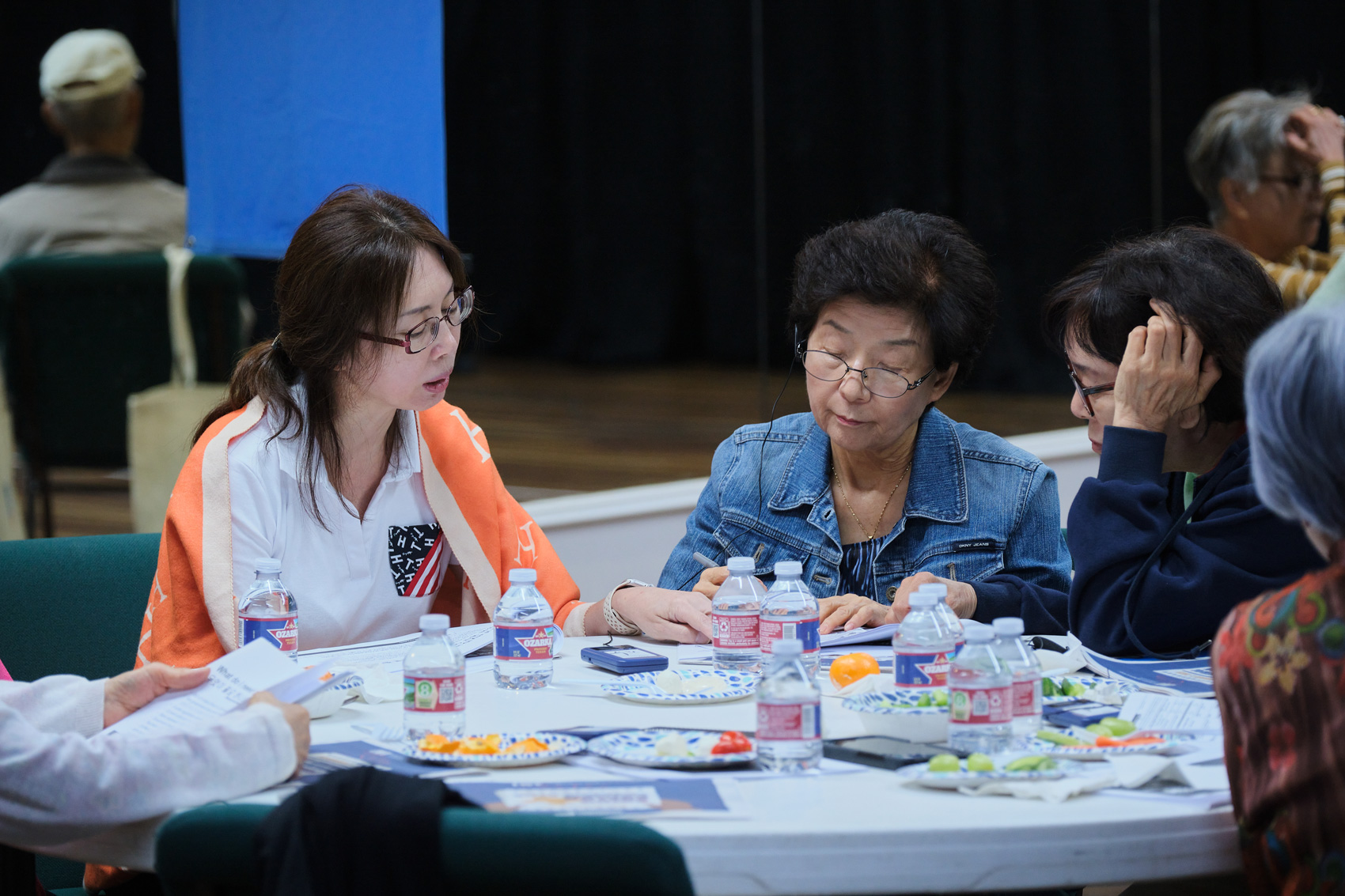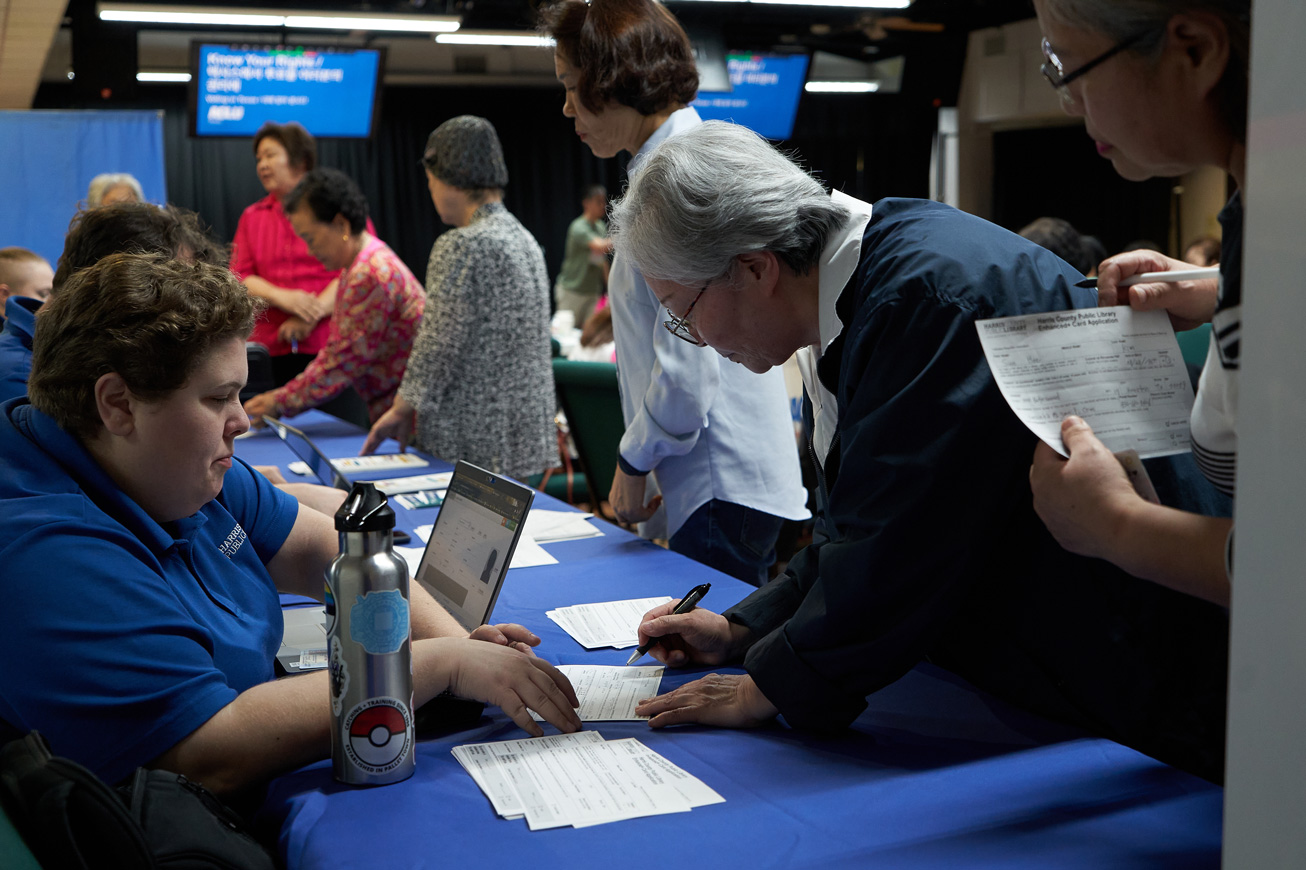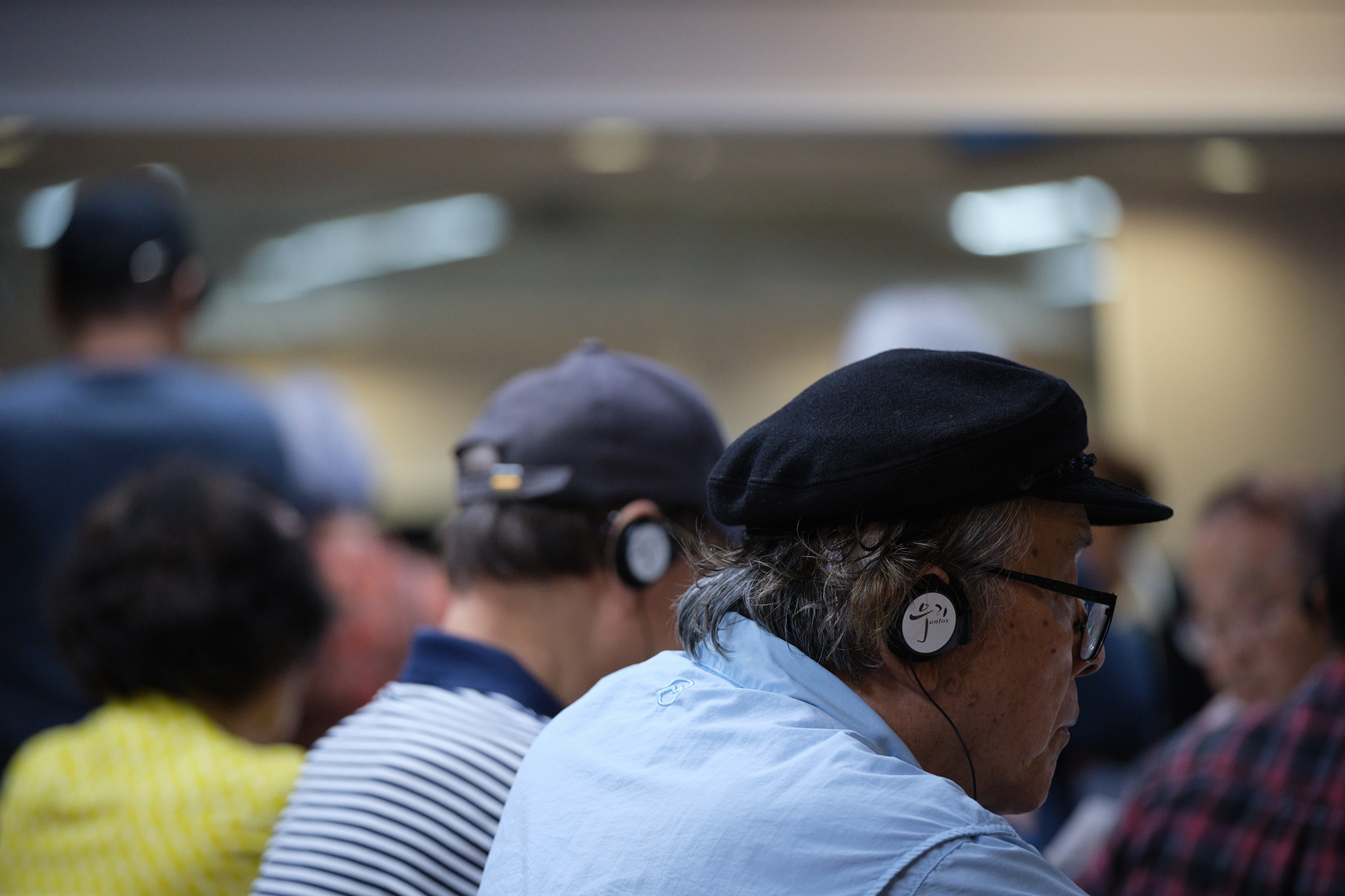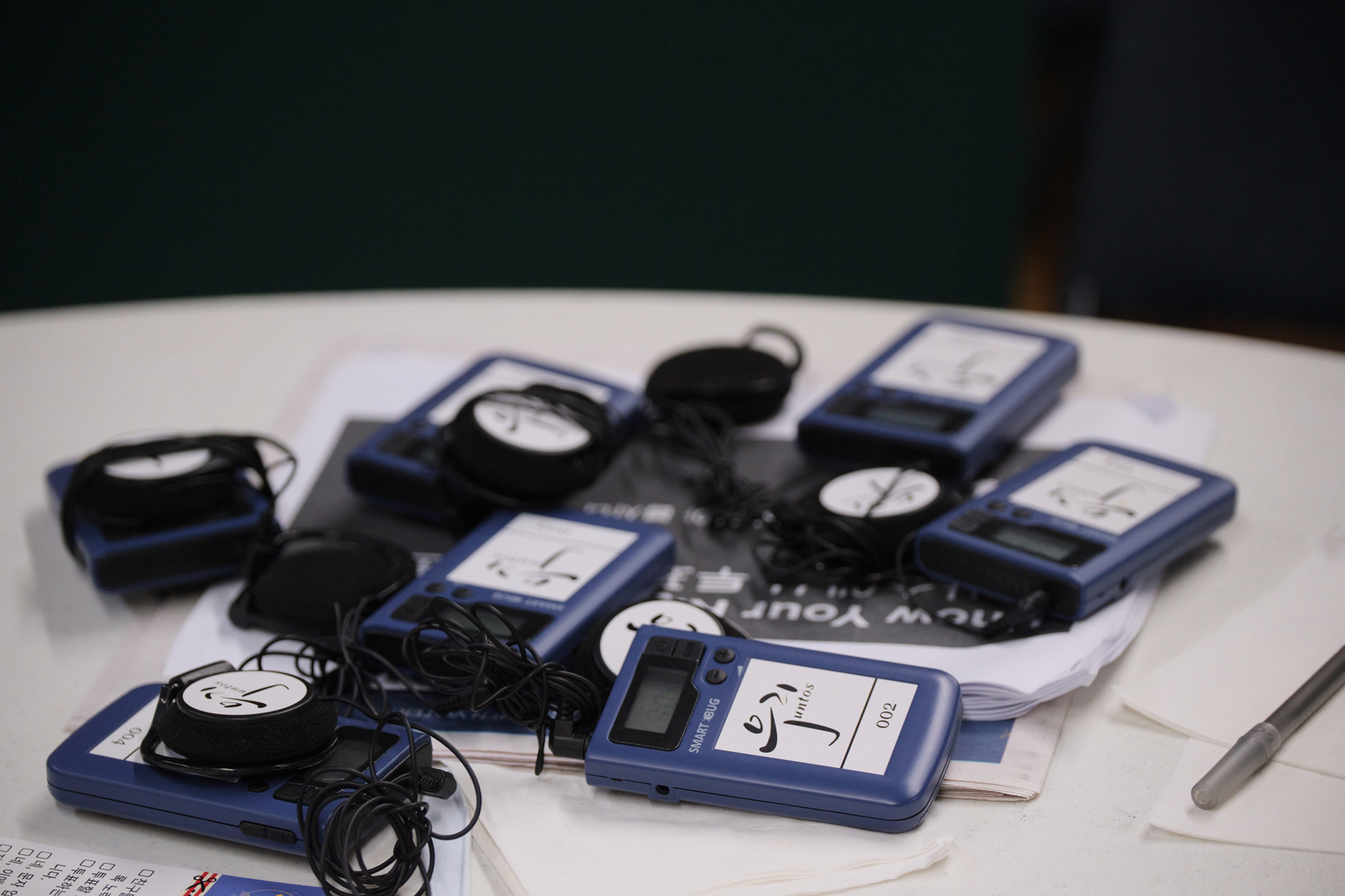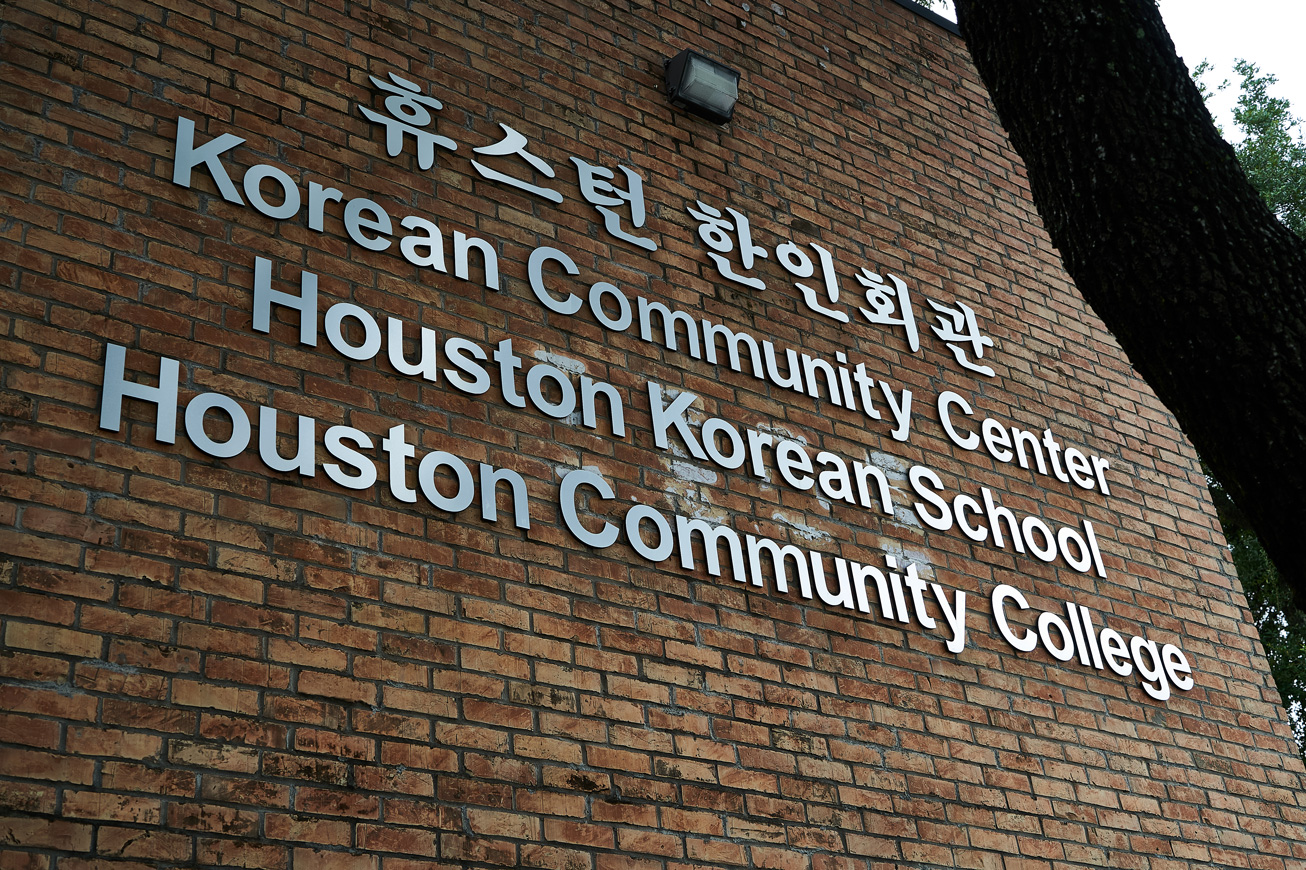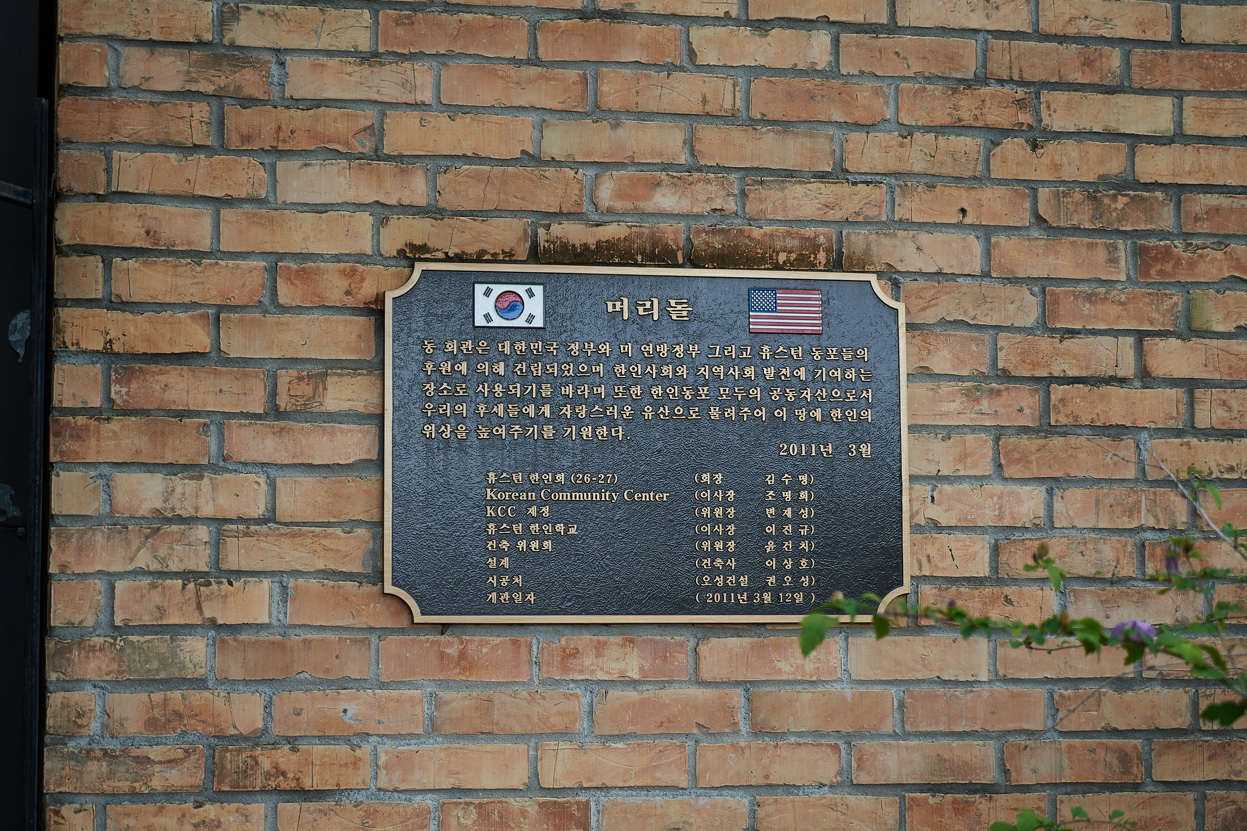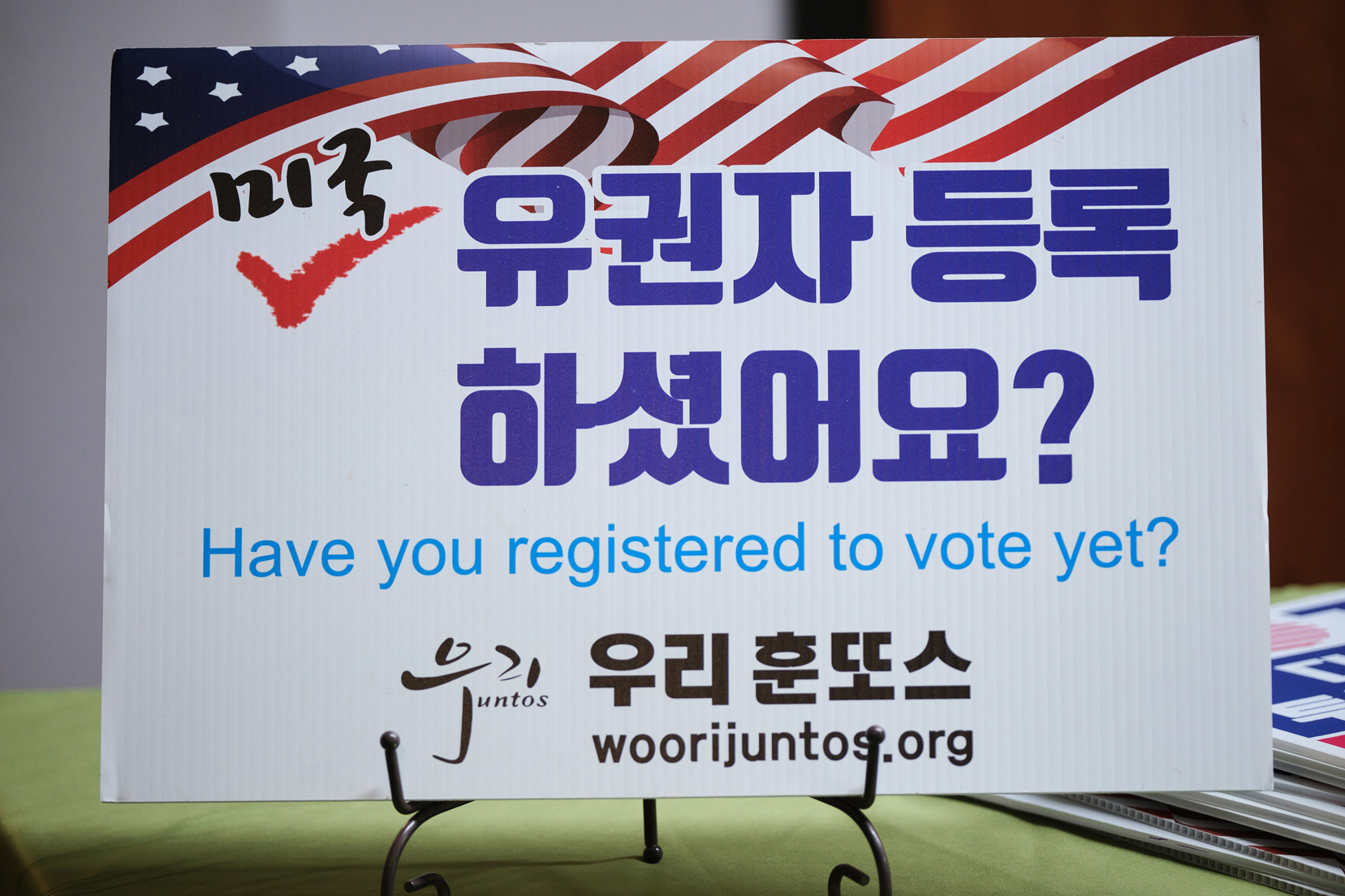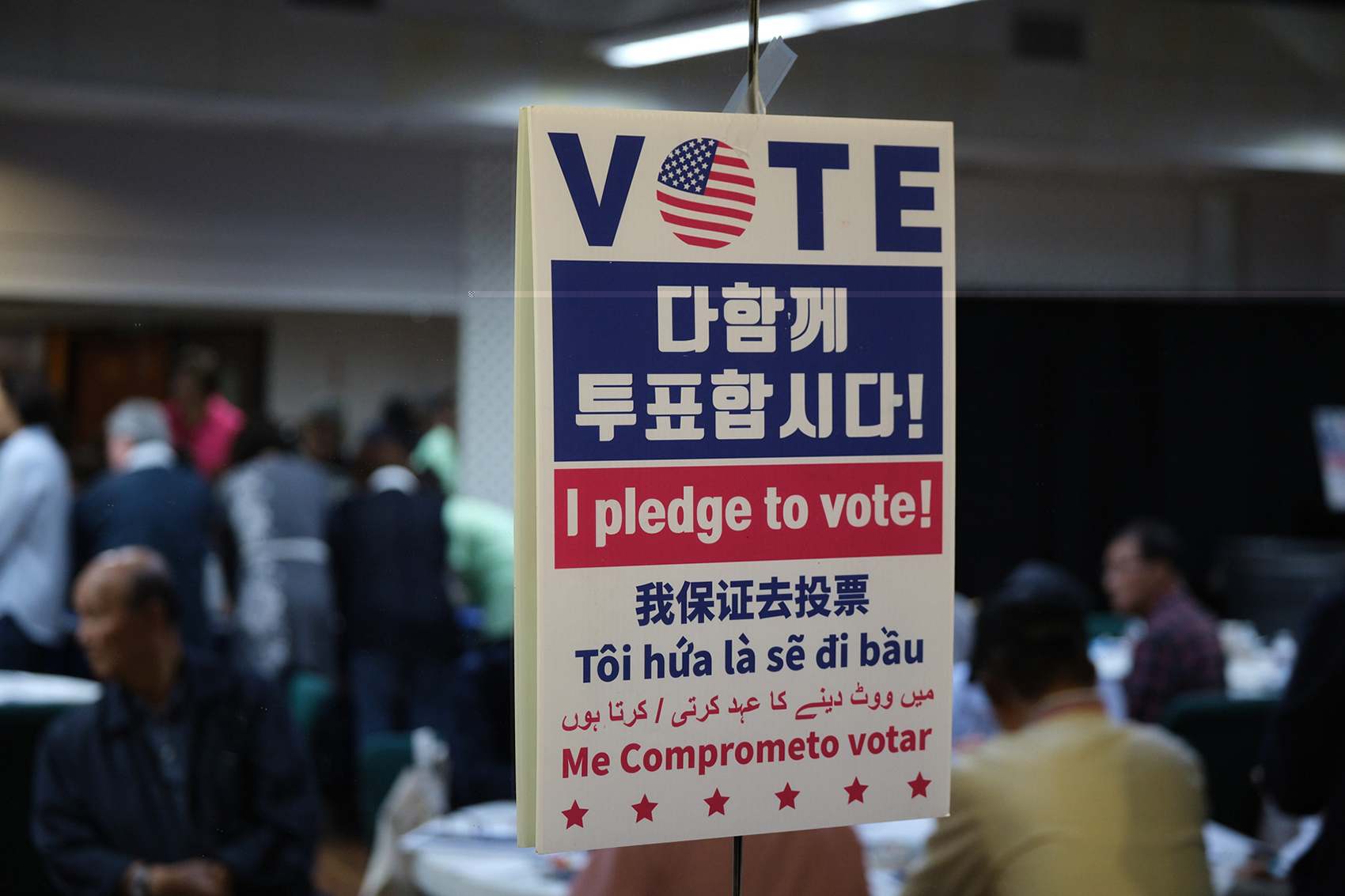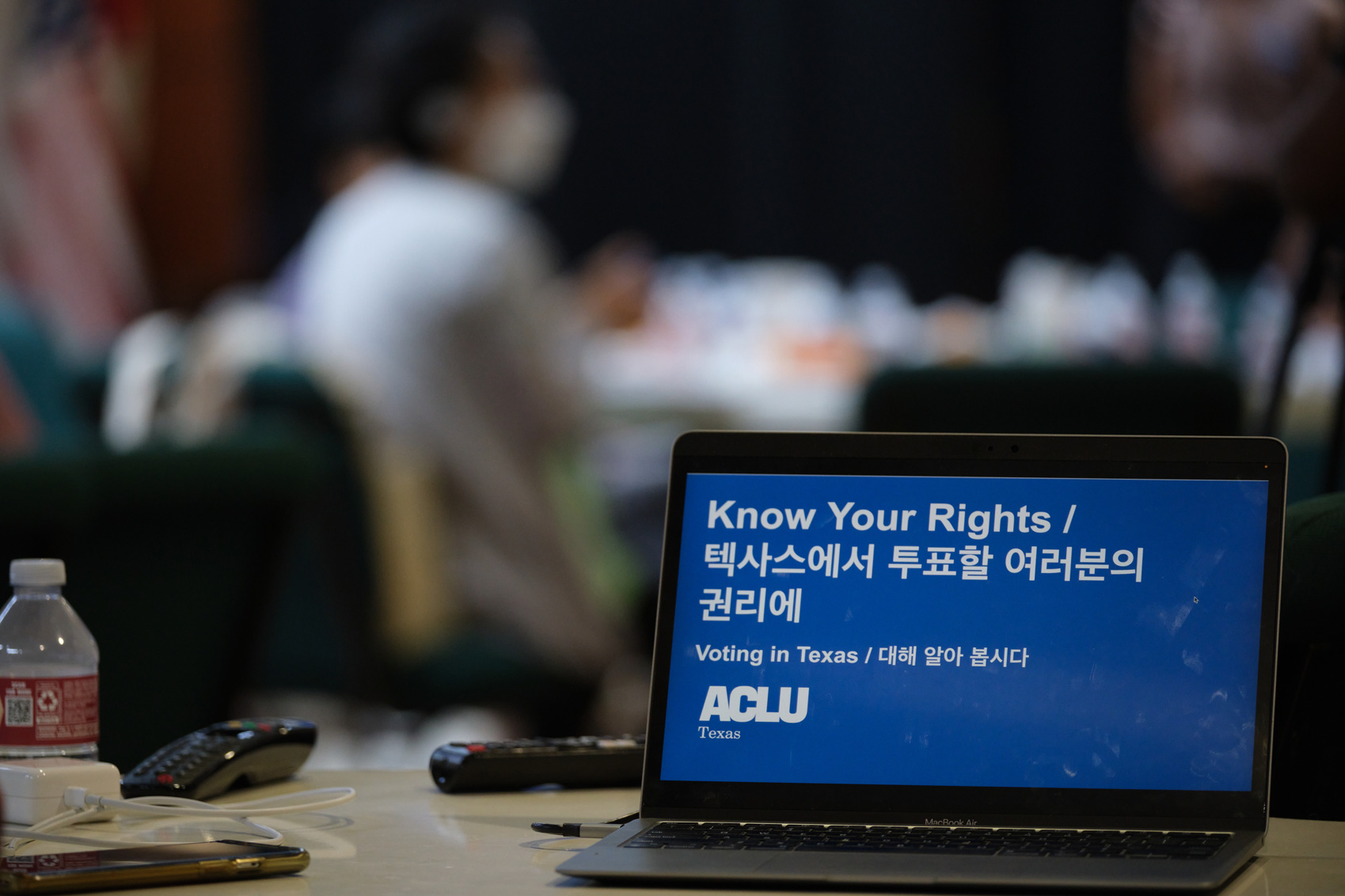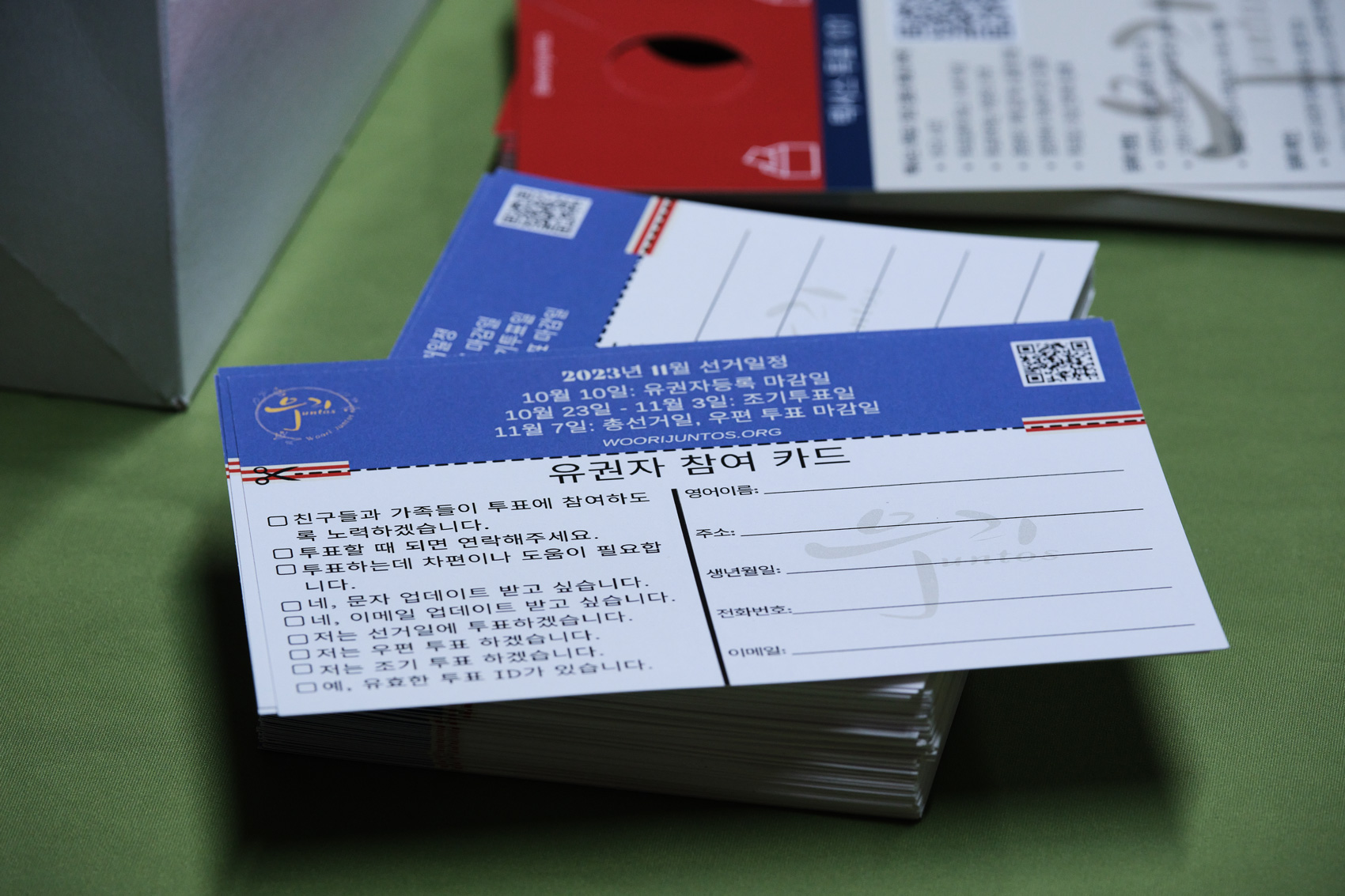|
Getting your Trinity Audio player ready...
|
Thousands of eligible Korean-American voters call Harris County home, but they may not be able to confidently vote in the upcoming election because they don’t have access to a ballot they can easily understand in their native language.
Houston is one of the most diverse cities in the U.S. and almost half the residents can speak languages other than English, with an estimated 145 languages spoken, according to the latest Census data. But ballots in Harris County are only provided in four languages: English, Spanish, Chinese and Vietnamese.
Community members and activists have asked for years for a Korean ballot, but have always gotten the same answer: they don’t meet the threshold for the number of Korean voting age citizens required under federal law. The county could act independently and adopt a Korean ballot, but has yet to do so, which leaves thousands of Korean American voters with limited English proficiency to either fend for themselves or rely on community organizers and interpreters who are stretched thin.
The Voting Rights Act requires that a state or political subdivision provide all registration or voting materials — including forms, instructions, assistance, and ballots — in the language of applicable minority groups if the materials are also available in English. The purpose is so that “all citizens will have an effective opportunity to register, learn the details of the elections, and cast a free and effective ballot.”
But the law sets thresholds using intricate formulas from U.S. Census American Community Survey data to determine mandatory language assistance. According to the act, a county or political subdivision must adopt a language on a ballot if there are more than 10,000 eligible voters or more than 5 percent of its voting population who are illiterate and do not speak English very well.
Officials say Harris County hasn’t met either threshold for Korean speakers.
There are more than 17,000 Korean residents in Harris County, and nearly 9,200 of them are eligible to vote, according to 2021 estimates from the U.S. Census Bureau.
However, factoring in literacy rates based on a person’s completed level of education and English language proficiency removes more than 7,000 estimated voters from that total, pulling the community further away from the required 10,000-voter threshold.
Officials say Korean voters don’t meet the 5 percent threshold, either. But some within the local Korean community estimate that the latest Census numbers are significantly low and do not accurately represent the Korean population in Harris County.
“We have a much larger community than was counted,” said former activist and translator, Dona Kim Murphey, reflecting on the number of Korean megachurches in Harris County and the “huge” Korean population in Katy, parts of which are within Harris County.
“That's probably true for a lot of communities, especially immigrant communities,” she said. “But since that's what the official count is, they won't be moved legally to do it. They, to date, have not been moved otherwise to do it, even though they could.”
Some counties like Cook County in Illinois and states like California have taken measures to add additional languages beyond the federal requirements, but Harris County has not.
Harris County Precinct 4 Commissioner Lesley Briones’ office, which serves the Spring Branch community, initially declined to comment, but later after publication emphasized how critical language access is in “such a diverse area as Precinct 4, where over 100 languages are spoken by our 1.2 million residents.”
“Since I took office, we have prioritized language access at our Precinct 4 community centers and events,” Briones said in the statement. “We recently offered live interpretation in Korean, Mandarin, Vietnamese, and Spanish at our listening tours, and launched our new website in nine languages. I am committed to working with community partners to further improve language accessibility to meet the needs of all Harris County residents.”
Hyunja Norman, the executive director of Woori Juntos, a language justice nonprofit that advocates for Koreans and other immigrant communities, estimated that there are likely tens of thousands of Koreans in Harris County, anywhere from 40,000 to 50,000. But she believes that there’s also a huge portion of Koreans who aren’t U.S. citizens and can’t vote, or who are U.S. citizens but aren’t registered to vote.
“That is why we have to help our people to register to vote,” Norman said, adding that they're also trying to push some Koreans to become U.S. citizens.
Years of frustration
The absence of a Korean ballot saddens people like Shirley Wong, a community outreach coordinator with the Harris County Clerk’s election’s department, who said she’s frequently asked if there’s a Korean ballot. She said she always tries to advocate for minority communities, but is limited.
“I really want to accommodate the need because I’m Asian as well but I don’t speak Korean. I’m Chinese,” Wong said at a recent voting rights session hosted by Woori Juntos and ACLU Texas at the Korean Community Center in Spring Branch.
“But I would just provide any assistance every time they ask me to come speak to their community, I will have someone to help me translate and provide the information to them.”
Activists and volunteer interpreters first lobbied for a Korean ballot to resolve a 2018 controversy when poll workers prohibited translators from offering assistance to Korean-American voters at Trini Mendenhall Community Center in Spring Branch on a Sunday in October designated as Korean American Early Voting Day.
They argued that the translators violated the Texas Election Code on the conduct of voting, which bars partisan loitering and electioneering within the 100-foot mark of the polling site. A volunteer translator is not eligible to be within the 100-foot marker unless they have been asked specifically by a voter to provide them assistance, according to the law.
A deputy in the county attorney’s office told the Houston Chronicle that problems arose because the translators were asking voters if they needed help. Many outraged activists and translators denied electioneering allegations and claimed it was a violation of their civil rights.
“They were like, ‘Well, we can't know that you're not influencing voters,’” Murphey said.
It escalated to the Texas Secretary of State, who sided with the county, thus diverting translators and community leaders like Murphey, “basically to the street,” she added.
“Hyunja has been doing that for many years,” she said, referring to Korean American Early Voting Day. “But that election in particular was super contentious because it was a midterm election, post-Trump and I think that's why that was part of why it escalated the way it did.”
To resolve the issue, Harris County in 2019 hired two translators directly from the community to work as staff poll workers.
Doing so, De Leon said, was the best way to address the absence of a Korean ballot.
“That's the model to use when the language is not covered under the federal government,” he said to the Landing.
What to expect this election season
Harris County is using that model again this year, but just one English-Korean bilingual speaker is scheduled to work during the early voting period, county clerk spokesperson Rosio Torres-Segura said via email.
The county will also provide iPads with a translation application as a “backup for languages that are not covered under the Federal Voting Rights Act” at all 68 early voting centers, and on an “as-needed basis” on Election Day, Rosio Torres-Segura said via email. The initiative was introduced in 2019 to improve voter participation, but Norman said the Korean translations were poor and the interpreters seemed ill-prepared.
“(The) interpreters did not have much experience on voting,” Norman said.
“They do not know many languages, but also they are not prepared. I think they did not even know propositions were on the ballot. When someone wants to (be) an interpreter you have to have everything beforehand and study a little bit, but that kind of (process) wasn’t there. (The) interpreter did not know what was on the ballot completely.”
Torres-Segura acknowledged in an emailed statement that the county clerk’s office understands that the translation application on the iPads has limits.
“But in the effort to help the language minority groups not covered by the Federal Voting Rights Act, the County Clerk in 2019 incorporated this service as a component of the language assistance program,” she said in the statement. “Now that the County Clerk is Chief Elections Official again, the office will access the program and see how it can be enhanced.”
In the meantime, the onus to translate and inform thousands of limited English-speaking Korean voters about everything they need to know about the election falls on Woori Juntos — a team of nine full-time and two part-time staff members.
“We're only one more organization. And we also have partners, but there's so many people that I don't think we can reach everyone.,” said Steven Wu, Woori Juntos organizing and policy director, from his shared office.
Norman is encouraging Korean voters to vote early during their annual Korean American Early Voting Day on Sunday, where they’ll have a team of roughly 10 interpreters split between two locations, the Trini Mendenhall Community Center and DoubleTree by Hilton Houston Brookhollow Hotel. They also plan to monitor the polls and provide interpreters on Election Day at the Korean Presbyterian Church and Trini Mendenhall Community Center.
The easy solution, according to Murphey, is to translate the ballots into Korean to ease the burden on smaller organizations like Woori Juntos.
“To me, it just seems really kind of absurd that we would have people there doing what could just be done for us,” she said in an interview with the Landing. “And then it's just a matter of telling them how to use the machine.”
Hi there! I’m Monique Welch, one of Abdelraoufsinno’s Diverse Communities reporters, and I focus my reporting on Black, Asian, Asian American, or Pacific Islander, LGBTQ+ and People with Disabilities communities in our area. What stories do you think I should cover? You can also reach me by email: [email protected].


